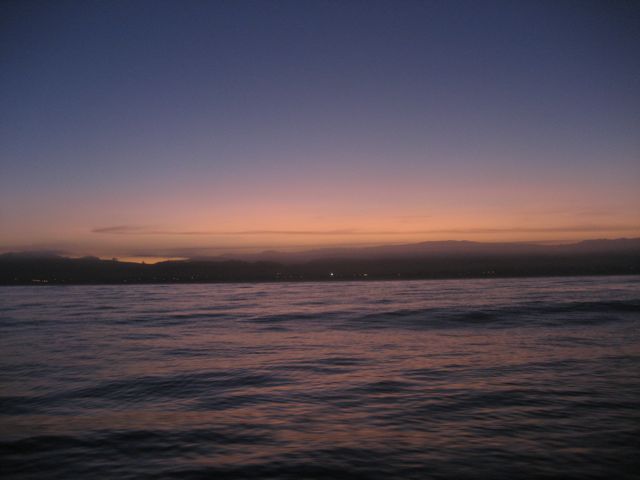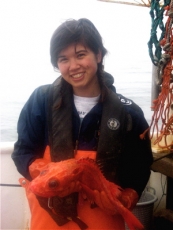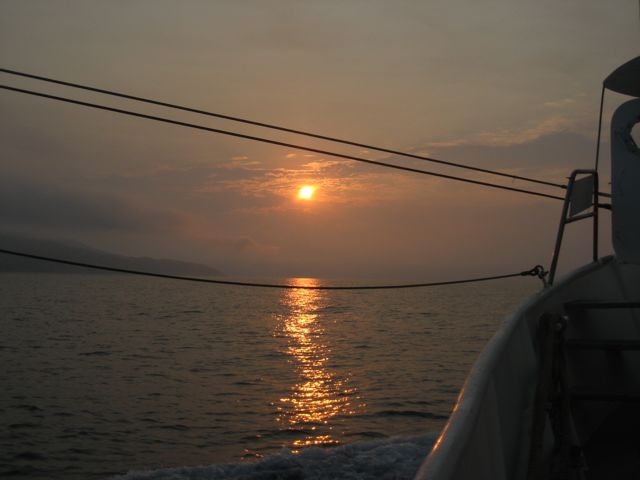

By Erin Loury, Ichthyology Lab
If you’re not a good morning person, think carefully before considering any type of marine field work. Whether it’s to catch a good low tide to sample an otherwise submerged tidepool, or to squeeze in as much fishing time on the water before the afternoon wind, it’s not unusual to start a summer morning of field work at 4 a.m. I definitely gain a new respect for weather and tides when operating on nature’s schedule – and maybe lose a bit in the beauty sleep department.
There are other consequences: I start thinking about lunch around 9:30 a.m., and bed starts sounding awfully good at 8 p.m. Although I often wish I had a crowbar to pry open my eyelids that early in the morning, the pre-dawn start can have its benefits too. Such as watching the sunrise light up the ocean. Suddenly, the field work I was cursing not two hours before becomes the luckiest job the world – and I remember just why I wanted to do marine science in the first place.


